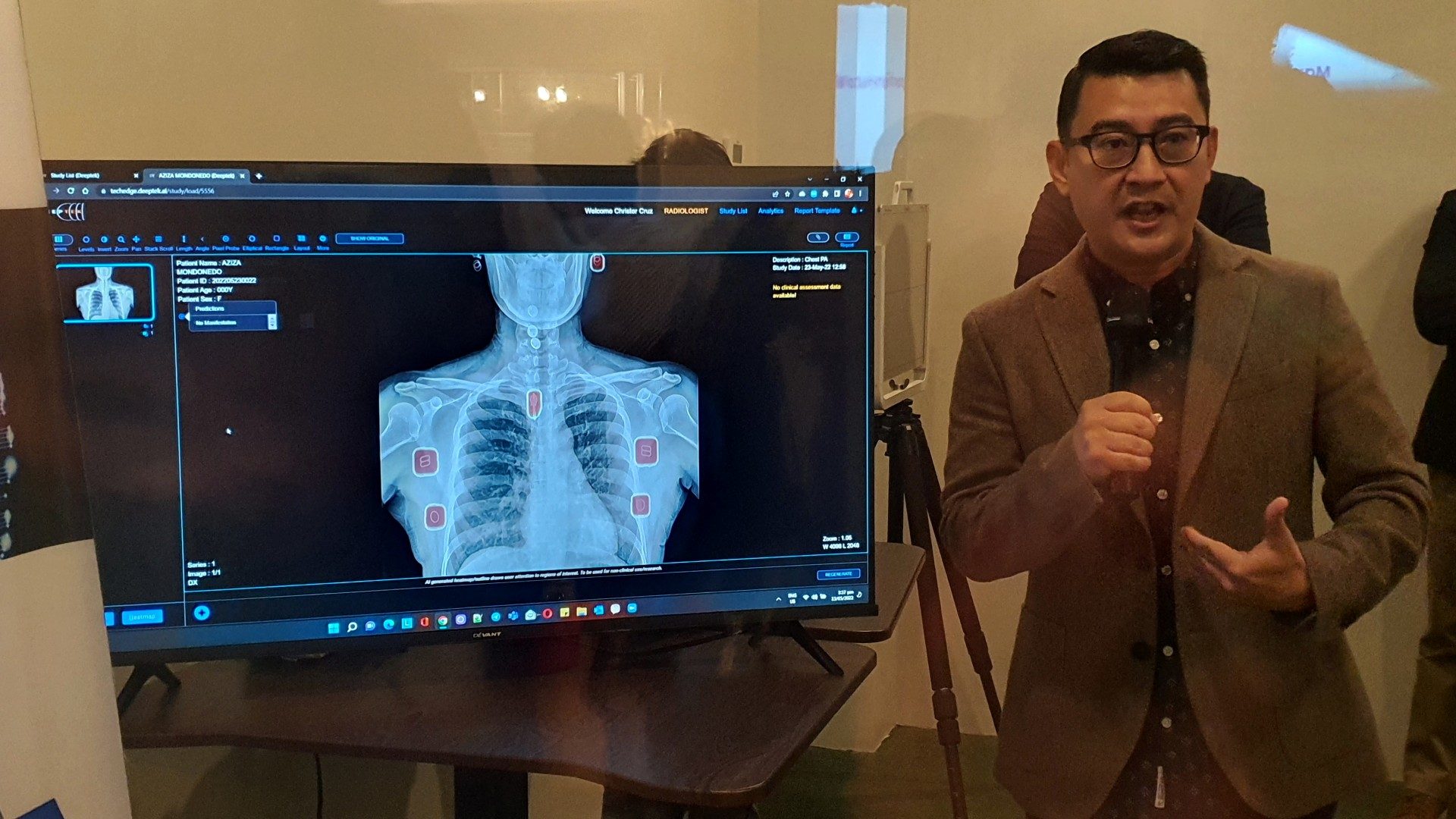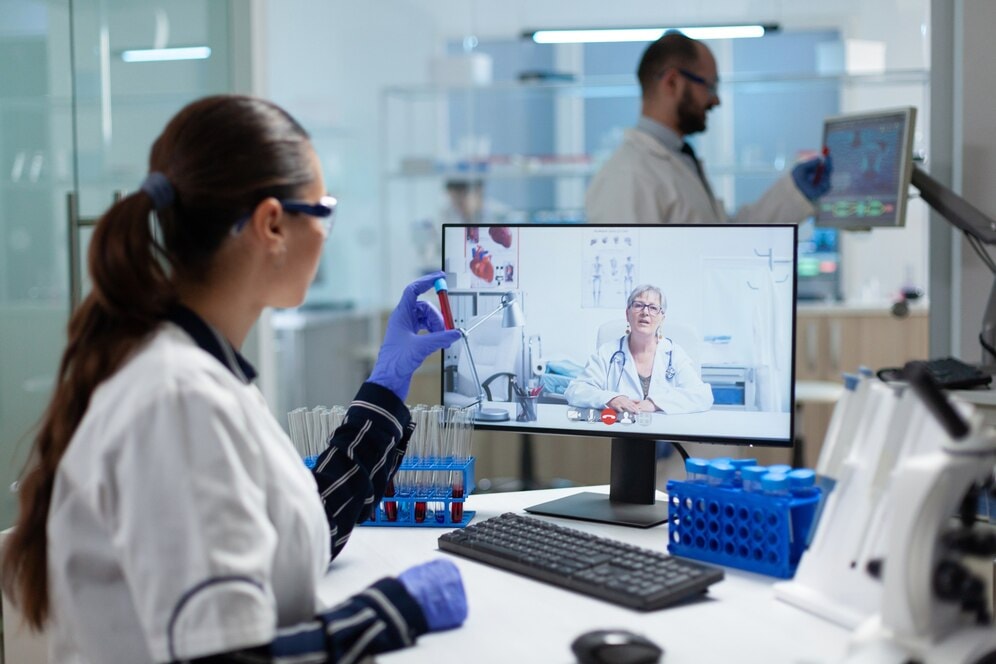Understanding the Impact of Technology on Healthcare in the Philippines

Recognizing the Impact of Technology on Healthcare

In recent years, the Philippines has embarked on a transformative journey in healthcare, leveraging technology to address longstanding challenges and improve healthcare delivery across the archipelago. This shift towards digitalization is seen as a pivotal step in bridging gaps in health services, enhancing accessibility, and elevating overall healthcare standards.
Current Landscape of Philippine Healthcare Technology

As of the latest updates, the Philippines is witnessing a remarkable evolution in healthcare delivery through the strategic integration of technology. These advancements are reshaping the landscape of healthcare accessibility, efficiency, and quality across the nation.
Key initiatives and innovations are driving this transformation, aimed at addressing longstanding healthcare challenges and enhancing overall patient outcomes.
Telemedicine expansion

Telemedicine has emerged as a cornerstone of healthcare accessibility in the Philippines, particularly accelerated by the challenges posed by the COVID-19 pandemic. Healthcare providers have swiftly adopted teleconsultation services, enabling patients to seek medical advice remotely through digital platforms.
This innovation has proven crucial in bridging geographical barriers, ensuring that individuals in rural and underserved areas can receive timely healthcare consultations without the need for extensive travel.
The widespread adoption of telemedicine has not only improved access to healthcare but has also facilitated early diagnosis, continuous monitoring, and management of chronic conditions.
Digital health infrastructure

The Philippines has made significant strides in bolstering its digital health infrastructure, with a particular emphasis on Electronic Health Records (EHRs). EHR systems are being implemented nationwide to digitize and centralize patient health information.
Electronic health records
This digital transformation enhances healthcare coordination among providers, reduces duplication of tests and procedures, and minimizes medical errors. By standardizing health data management, EHRs enable more informed clinical decision-making, ultimately improving patient care outcomes across diverse healthcare settings.
Mobile health applications

A proliferation of mobile health applications has empowered Filipinos to take proactive control of their health. These applications span various functionalities, from monitoring vital signs and managing medication schedules to providing personalized health tips and facilitating remote consultations.
Mobile health apps not only promote preventive healthcare practices but also support ongoing disease management efforts, contributing to improved health literacy and engagement among users nationwide.
Health information systems

These systems play a crucial role in streamlining the collection, analysis, and reporting of health-related data across the country. By centralizing and digitizing health information, these systems facilitate more efficient public health surveillance, timely disease monitoring, and effective resource allocation within the healthcare sector.
Central to these initiatives are platforms that enable healthcare facilities to report and track disease outbreaks in real-time, enhancing the government’s ability to respond swiftly to health emergencies.
Furthermore, these systems support evidence-based policymaking by providing comprehensive data insights into population health trends and healthcare service utilization patterns.
Digital health education and awareness

Concurrent with advancements in health information systems, the Philippines has been actively promoting digital health education and awareness among healthcare professionals and the general public.
Recognizing the transformative potential of digital health technologies, initiatives have been launched to enhance digital literacy and ensure the effective adoption of these tools across the healthcare ecosystem.
Educational programs encompass a range of activities, including workshops, seminars, and training sessions designed to familiarize healthcare providers with digital health technologies such as telemedicine platforms, EHRs, and mobile health applications.
These initiatives not only empower healthcare professionals to leverage digital tools for improved patient care but also cultivate a culture of innovation and continuous learning within the healthcare workforce.
Similarly, efforts to educate the public about the benefits of digital health technologies aim to increase awareness and encourage active participation in personal health management. Public campaigns emphasize the convenience of teleconsultations, the importance of health monitoring through mobile apps, and the advantages of having electronic access to personal health records.
By fostering digital health literacy among citizens, these initiatives aim to empower individuals to make informed healthcare decisions and adopt healthier lifestyles.
Government initiatives

The Philippine government has demonstrated a strong commitment to advancing digital health through comprehensive policies and initiatives. Strategic efforts include expanding broadband infrastructure to support robust telemedicine networks, promoting interoperability standards for seamless EHR integration across healthcare facilities, and enhancing cybersecurity protocols to safeguard sensitive patient data.
These initiatives are pivotal in fostering a conducive environment for digital health innovation and ensuring equitable access to high-quality healthcare services across all regions of the country.
Technology stands as a catalyst for transformation in Philippine healthcare, ushering in an era of enhanced accessibility, efficiency, and patient-centered care.
The ongoing collaboration between government agencies, private sector stakeholders, and healthcare providers is instrumental in driving continued innovation and ensuring that digital health solutions benefit individuals and communities.
With steadfast commitment and strategic investment, the Philippines is poised to build a resilient healthcare system that meets the evolving needs of its population in the digital age.
Challenges and Opportunities

The integration of technology into Philippine healthcare holds inspiring promise for improving healthcare delivery and outcomes nationwide.
However, this transformation is not without its challenges. Addressing these hurdles while seizing opportunities is crucial to realizing the full potential of digital innovation in advancing nationwide healthcare accessibility, efficiency, and quality.
Infrastructure and connectivity

The Philippines faces significant disparities in internet infrastructure and connectivity, particularly in rural and remote areas. Limited access to reliable broadband hampers the widespread adoption of digital health technologies like telemedicine and EHRs.
Efforts are underway to expand broadband coverage and improve network reliability, aiming to ensure equitable access to healthcare services regardless of geographical location.
Data privacy and security
Protecting patient data in the digital age is paramount. Concerns over data breaches and privacy violations necessitate robust cybersecurity measures and stringent data privacy laws. Strengthening these safeguards is essential to maintaining patient trust and confidentiality in digital healthcare solutions.
Compliance with international standards such as General Data Protection Regulation (GDPR) and Health Insurance Portability and Accountability Act (HIPAA) is increasingly important as digital health adoption expands.
Healthcare industry workforce capacity

Effective utilization of digital health technologies requires a skilled healthcare workforce equipped with digital literacy and proficiency. Training programs and capacity-building initiatives are vital to empower medical professionals with the necessary skills to navigate and leverage technological advancements in patient care.
Continuous education and upskilling are key to ensuring that healthcare providers can effectively integrate digital tools into clinical practice.
Future Directions
Looking ahead, the future of healthcare in the Philippines is intricately linked with ongoing advancements in technology. Key areas for future development include:
Digital infrastructure investments
Continued investments in digital infrastructure are essential to expand broadband access and enhance connectivity, particularly in underserved areas.
Regulatory frameworks
Strengthening regulatory frameworks around data privacy and cybersecurity will safeguard patient information and foster trust in digital health solutions.
Healthcare innovation
Promoting innovation in healthcare through research, development, and adoption of cutting-edge technologies will drive improvements in healthcare delivery and outcomes.
These efforts are pivotal in advancing universal health coverage and achieving sustainable development goals, ensuring that all Filipinos have access to quality healthcare services.
Technology is reshaping the healthcare landscape in the Philippines, offering unprecedented opportunities to bridge healthcare disparities and elevate overall standards of care.
By harnessing digital innovation effectively, the Philippines can overcome traditional healthcare barriers and create a more inclusive and resilient healthcare system.
This underscores the transformative impact of technology on Philippine healthcare, emphasizing its role in enhancing accessibility, efficiency, and quality of care nationwide.

